Rewilding Europe has now completed its seventh year since foundation in 2011. In this message, Rewilding Europe’s managing director presents 12 showcase stories from 2018, and looks ahead to the next seven years – taking our burgeoning initiative through to 2025.
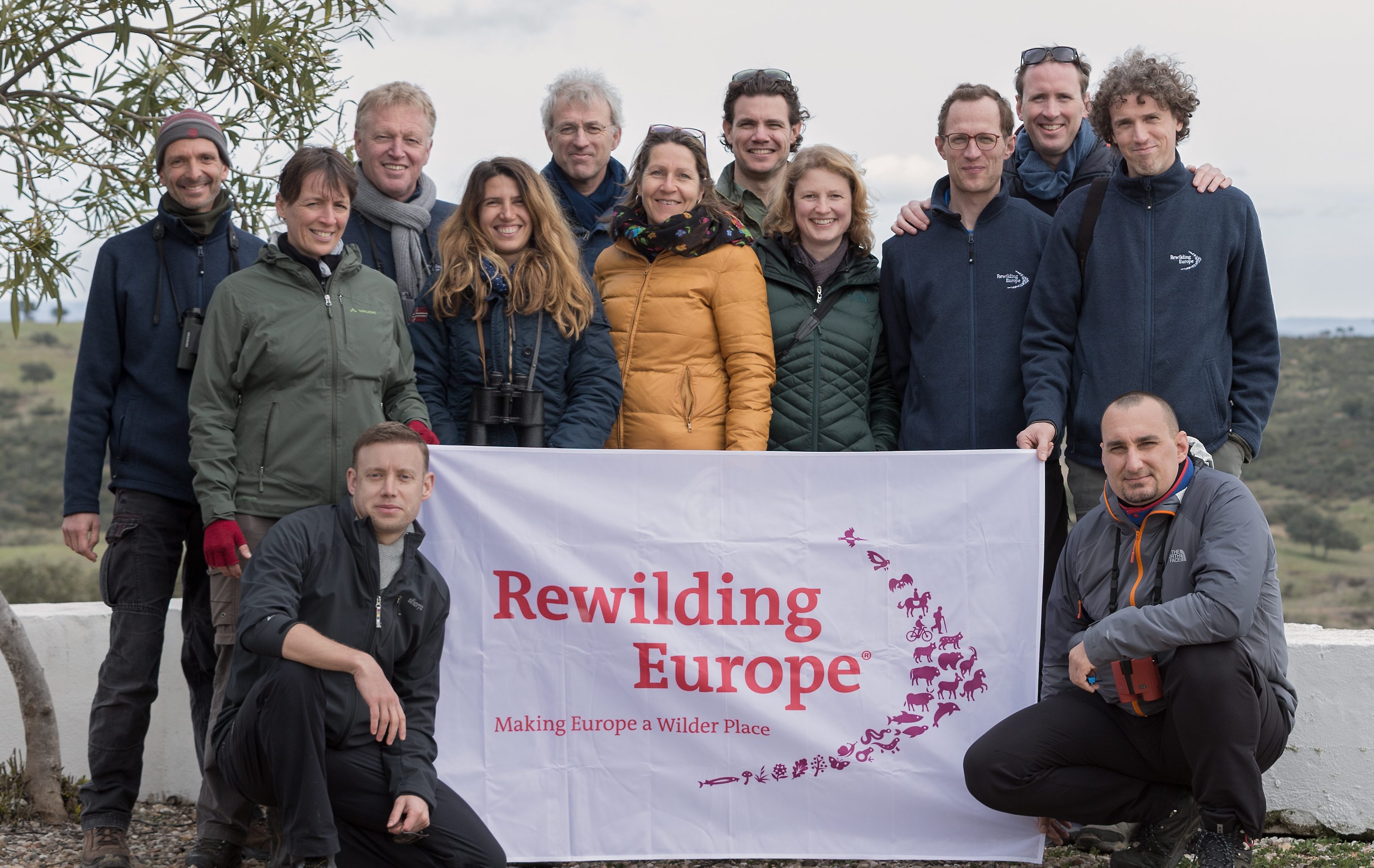
I first and foremost wish to express my gratitude to our committed team members, board members, partners and donors – it is you who have enabled us to be where we are today. I am proud to share our twelve most memorable stories from 2018 with you.
We have been able to further catalyse rewilding across Europe, grow our support base, engage with new partners, invest in our rewilding areas, grow the European Rewilding Network, and work on a wide range of activities across our continent. I am sure we have all observed the continued growth of rewilding as a conservation approach in Europe. From Scotland to the Balkans, from the Mediterranean to Scandinavia, the rewilding movement is increasingly refocusing and re-energising European nature conservation.
Since the first rewilding areas came on board in 2012, we have established a strong and coherent network, investing in a wilder future for these European landscapes. You can see an overview of our most memorable stories from 2018 below.
It is a tantalising question to ask how we see ourselves developing in the mid-term – where will we be, say, in another seven years? This would take us to 2025. What exactly is our “dot on the horizon”? And how do we get there?
To address this question, we embarked on an important process in March this year. Under the title “Rewilding Europe Outlook 2025”, we started to identify our new joint ambitions for 2025. Starting with a description of how we see ourselves as one of the leading actors in the European rewilding movement, we identified three possible growth scenarios, of which we finally selected one as our optimum choice.
Having been fleshed out in fine detail, this optimum scenario was subsequently endorsed by our Supervisory Board on November 28. It represents an exciting and progressive – yet still realistic – new ambition for 2025 based on our achievements to date. Some key elements are:
- By 2025, rewilding will have become a mainstream approach for restoring natural processes and reconnecting man and wilder nature. Rewilding practice will be embedded and supported at EU and country level by specific enabling policies. In this context, Rewilding Europe will continue to play a vibrant leadership role in demonstrating grounded, innovative approaches and impact, positioned well in broader European society.
- By offering natural solutions to modern socio-economic challenges, Rewilding Europe will have achieved cooperation with numerous partners in regional planning as in water, forestry, wildlife management and other relevant sectors. These solutions will often contribute to climate change adaptation and mitigation.
- The vision of Rewilding Europe will have become real, with numerous tangible results and impacts. Through pilots, especially those in carefully selected rewilding areas, rewilding models will have become showcases for replication and amplification, both geographically and across specific sectors. Rewilding enterprise principles will have become accepted, incentivising both the private and public sector.
- Rewilding areas will lie at the core of Rewilding Europe’s work, representing real and iconic places embodying our rewilding vision at a local level. They will have become successful and leading rewilding examples, distributed across Europe. Through local ownership and leadership, with a rewilding strategy and vision aligned with Rewilding Europe, they will have become self-sustainable to the fullest extent possible. In the meantime, Rewilding Europe will continue to play a role in inspiring and supporting the wider rewilding movement – all members of the ERN – as Europe’s preeminent rewilding pioneer, expert and driving force.
We look forward to realising this new ambition with all of you, and invite you to be part of it!
I would like to take this opportunity, on behalf of myself and everyone at Rewilding Europe, to wish you a wild, inspirational and wonderful 2019.
Wild regards,

Managing Director
Showcase stories from 2018
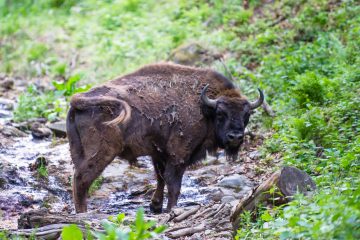
WILD EUROPEAN BISON ROAMING THE CARPATHIANS
Europe’s largest bison reintroduction continues its success
The population of reintroduced European bison in the Southern Carpathians was boosted by 23 new animals, with Poiana Rusca established as a new release site. There are now nearly 55 animals roaming freely, thriving and producing calves. Numerous locally-driven activities support the comeback of this iconic species, including new technology to mitigate human-bison conflict and local enterprises such as B&B and food products.
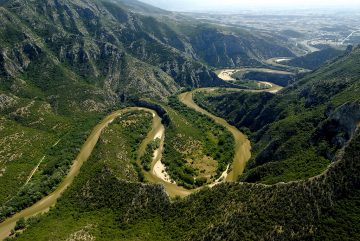
EUROPEAN REWILDING NETWORK CONTINUES TO GROW
Influential network now totals 67 rewilding initiatives across 27 countries
The European Rewilding Network maintained its growth, with the addition of seven new members from the UK, Italy, Greece, Albania, Portugal, Germany and France. Fascinating webinars were organised on river restoration, dam removal, nature-based tourism and large herbivore reintroduction, involving dozens of members from across Europe. The ERN is becoming more important and active year by year, supporting Europe’s burgeoning rewilding movement.
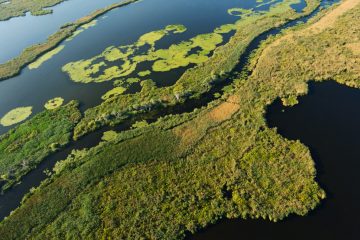
DANUBE DELTA GOES BIG
Record-breaking restoration kicks off
An inaugural grant from the newly established Endangered Landscapes Programme will enable Rewilding Europe and local partners to scale up rewilding efforts across an expansive area of wetland and steppe in the transboundary Danube Delta in Ukraine, Romania and Moldova. The 2.1 million euro grant will help to restore at least 40,000 hectares of wetlands, strengthening cross-border cooperation and the reintroductions of wildlife species.
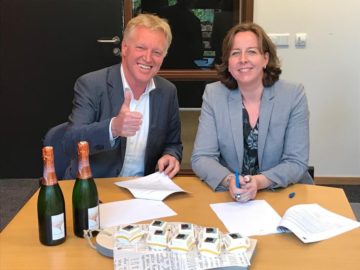
NEW PARTNERSHIP WITH WWF NETHERLANDS
Strengthening our commitment to restoration
The signing of a five-year strategic partnership agreement in November marks a new phase of our cooperation with WWF Netherlands. The renewed cooperation will deliver tangible outcomes in
support of a wilder Europe, including river and wetland restoration, dam removal, innovative financing mechanisms, EU policy and large-landscape conservation in the southwest Carpathians. Efforts will be supported by joint fundraising and communications.
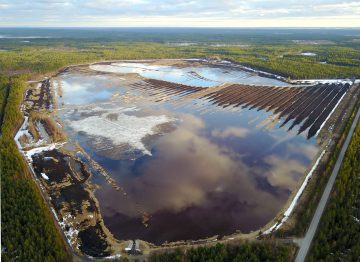
NATURAL CAPITAL FINANCING FACILITY
Major loans for peat restoration and forest transformation
Disbursed just before the year-end, two new Rewilding Europe Capital loans totalling 800,000 euros are set to enable and scale up groundbreaking rewilding projects from 2019 onwards. The loans, which are being drawn down from the European Investment Bank’s Natural Capital Financing Facility, will finance forest management in Portugal (600,000 euro loan), and wetland restoration in Finland (200,000 euro loan). You will read more in a news release in early January.
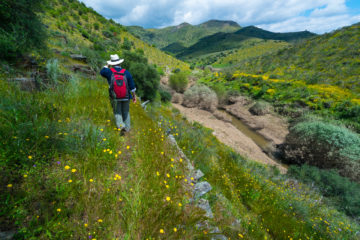
REWILDING IN PORTUGAL
Greater Côa Valley receives major grants
A grant from the newly established Endangered Landscapes Programme will enable Rewilding Europe and local partners to develop a 120.000 ha wildlife corridor in the Greater Côa Valley in northern Portugal. The 2.6 million euro grant complements a 1.5 million euro grant from the European Commission to support the comeback of the Iberian wolf in the area. A new local entity, Rewilding Portugal, has been set up to lead the work.
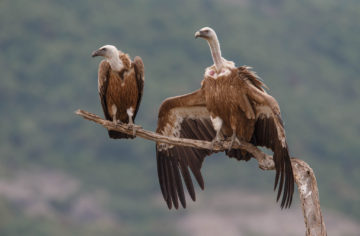
VULTURES IN THE RHODOPE MOUNTAINS PROGRESSING
Wide range of actions supporting a unique food chain
Supporting three iconic vulture species, the team in the Rhodope Mountains is making great progress in restoring the local Rhodope Mountains is making great progress in restoring the local web of life web of life. Underpinned by the GPS tagging and monitoring of vultures, and protection of their nests and colonies, complemented by the release of herds of deer and horses and development of strong community support, 2018 witnessed a stabilisation and increase in the number of breeding pairs. The fledging of 62 young griffon vultures in the only colony in the region was particularly positive and typified the upward trend.
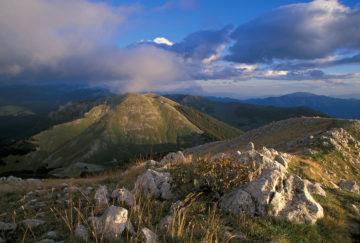
CENTRAL APENNINES BOOSTED
New board and team started working
With a new board and team established, the Central Apennines rewilding area in Italy progressed well in its development toward a prime example of European rewilding. One of the first steps taken was cooperation with local NGP Salviamo l’Orso. This will help to conserve and boost the area’s critically endangered population of Marsican brown bears, starting with a focus on reducing human-bear conflict. We hope to grow this initiative significantly in 2019.
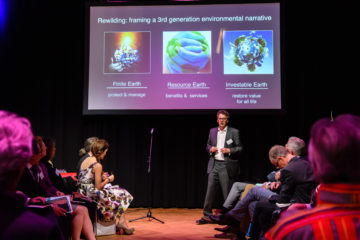
CONNECTING WITH THE ACADEMIC WORLD
First scientific publications about rewilding published
Co-authored by Rewilding Europe team members, landmark academic papers were published on various aspects of rewilding. These included publications on measuring rewilding progress and the main lessons learnt from six European rewilding initiatives. Together with a wide range of institutions from across Europe, we continued to pioneer the development of a sound scientific base for European rewilding.
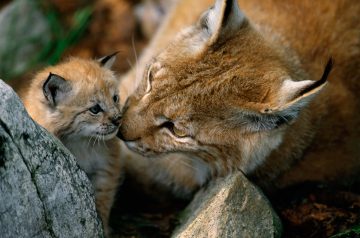
REWILDING ON THE POLICY AGENDA
Promoting the restoration agenda using rewilding principles
In our unique partnership with WWF, BirdLife, EEB and iDiv, we made progress promoting the European restoration agenda. The aim is to ensure rewilding principles become part of an advanced restoration effort in EU countries through the new EU Biodiversity Strategy post 2020. A map highlighting Europe’s rewilding potential was developed and unveiled at an event during the CBD COP 13 in Egypt in November.
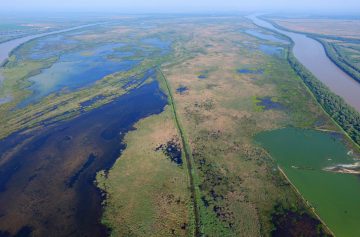
STRENGTHENING THE REWILDING MOVEMENT IN EUROPE
New entities established to govern rewilding initiatives
The year 2018 saw four rewilding entities established, all with independent local boards and teams: Rewilding Ukraine, Rewilding Portugal, Rewilding Apennines and Rewilding Sweden. The establishment of a new entity called Rewilding Oder Delta is also well underway. These entities will govern rewilding initiatives and are the prime and formal partner of Rewilding Europe in each of the related rewilding areas.
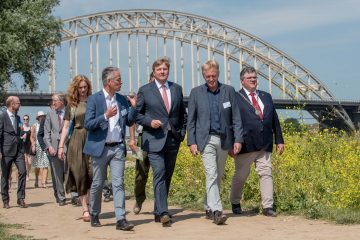
NIJMEGEN GREEN CAPITAL OUTREACH
Seizing the opportunity to showcase our work
The Dutch city of Nijmegen, home to Rewilding Europe’s central office, celebrated its status as EU Green Capital 2018 with numerous activities. Rewilding Europe was invited to present its work to a wide range of visitors, taking them to the nearby Gelderse Poort rewilding area. Principle guests were King Willem- Alexander of the Netherlands, EU Commissioner Karmenu Vella, and the Environmental Committee of the European Commission.
